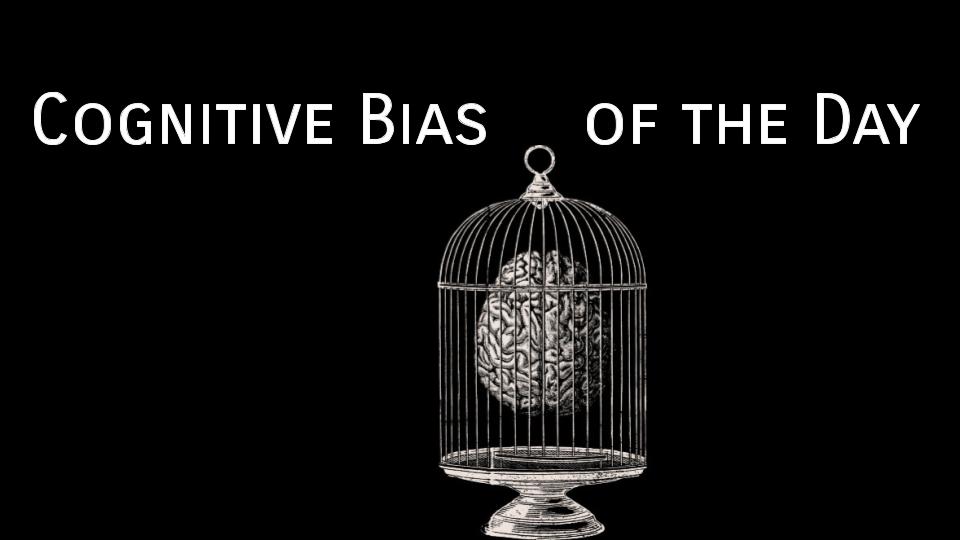Virtues and Vices

My glory will not be forgotten.
~Homer's Iliad
Making room...
Last time we covered two versions of one ethical theory: divine command theory. Towards the end of the lesson we considered some objections to the theory that stem from the many open questions surrounding the phenomenon of religion. There is, of course, the question of whether God exists at all, but we'll put that aside for now. The question that we considered was: Why should you feel closer to someone who has similar supernatural concepts? This question came from the work of Pascal Boyer.

In Minds Make Societies, Pascal Boyer (2018) continues the discussion on the complications behind trying to understand the phenomenon of religion. Boyer, by the way, is considering religion as a natural phenomenon; that is, he is taking the atheistic perspective which seeks to explain religion as having arisen from our social construction of reality. Despite the apprehension that some might feel about this approach to religion, his insights into religion are fascinating. Related to the issues concerning this course, Boyer discusses the historical fact that religious beliefs endured a radical shift in focus between 600 BCE and 100 CE.
Boyer points out that what we commonly take to be necessary features of religion (like a doctrine, clergy, and the cultivation of a soul that must be saved) are recent developments that only appeared with the development of large-scale state societies with an extensive division of labor (see Boyer 2018: 108). This connects to the work of Ara Norenzayan, whom we covered last time. It looks like it was around the same time that civilizational complexity started increasing that religions of the type that we recognize today started cropping up. In fact, the notions of souls and salvation—which are, intuitively, fundamental components of any "real" religion—did not emerge until the time period that Boyer focuses on, 600 BCE - 100 CE. The philosopher Karl Jaspers calls this the Axial Age.
"These new movements emphasized cosmic justice, the notion that the world overall is fair, [and] they described the gods themselves as interested in human morality... The most important theme, which to this day shapes our understanding of religious activities, is the notion of the soul, as a highly individual component of the person that could be made better or purer and, crucially, could be ‘saved.’ The doctrines centered on the many ways one could eschew corruption or perdition of the soul... So the Axial Age matters, because the movements that appeared at that point in history had a considerable influence on subsequent religions. Indeed, the so-called world religions of today are all descendants of these movements” (Boyer 2018:108-110; emphasis added).
Clearly, if religion prior to the Axial Age is essentially unrecognizable relative to the way we conceive of religion today, this paradigm shift needs an explanation. So if we want to use religion and “Big Gods” as an explanation for collective action, then we’d have to understand why “Big Gods” (who care about your soul) arose during the Axial Age. This, however, is an open question. Moreover, if we are taking the theist's perspective, we have to wonder why God waited until that time period for revelation, given that humans had been around for 200,000 years. If we are taking the atheistic perspective, we have to wonder why humans, through cultural evolution, invented the notion of "Big Gods" around that time.1
All this to say that DCT has some problems. And so we open up towards another ethical theory, this one coming from the mind of Aristotle...

The Stagirite
"Aristotle was born in 384 BC, in the Greek colony and seaport of Stagirus, Macedonia. His father, who was court physician to the King of Macedonia [Amyntas III, father of Philip II], died when Aristotle was young, and the future founder of logic went to live with an uncle... When Aristotle was 17, he was sent to Athens to study at Plato’s Academy, the first university in Western history. Here, under the personal guidance of the great philosopher Plato (427-347 BC), the young Aristotle embarked on studies in every organized field of thought at the time, including mathematics, physics, cosmology, history, ethics, political theory, and musical theory... But Aristotle’s favorite subject in college was the field he eventually chose as his area of concentration: the subject the Greeks had only recently named philosophy” (Herrick 2013: 8-9).
Aristotle is the most famous student of Plato. He was prolific, writing on all major topics of inquiry established during the time that he was alive. Like his teacher, he also founded a school: the Lyceum. He was the tutor of Alexander the Great, son of Philip II. He was also the founder of the first school of Logic, a discipline he created and which is still studied when learning philosophy, computer science, and mathematics.2
“[W]e can say flatly that the history of [Western] logic begins with the Greek Philosopher Aristotle... Although it is almost a platitude among historians that great intellectual advances are never the work of only one person (in founding the science of geometry Euclid made use of the results of Eudoxus and others; in the case of mechanics Newton stood upon the shoulders of Descartes, Galileo, and Kepler; and so on), Aristotle, according to all available evidence, created the science of logic absolutely ex nihilo [out of nothing]” (Mates 1972: 206; interpolations are mine).

Important Concepts
The Gist
Aristotle's theory has some similarities and differences with the views of his famous teacher. Plato famously believed that the study of mathematics could grant you access to the fundamental nature of reality. The details aren't relevant here. The relevant aspect about Plato's thought for us is that he emphasized that living a virtuous life is living a good life; in other words, the person that is moral and just is happier than the person who is not. This view isn't completely original to Plato. Many people from the classical world in general had a preoccupation with achieving excellence. The word that they used was the Greek word arete. Arete, much like agathos, is closely associated with doing personal success, although what counts as success is characterized in different ways by different people. Arete was stressed perhaps most strongly by Plato's teacher, Socrates.

Arete requires practice,
focus, and commitment.
Aristotle agrees with Plato and Socrates that being moral is part of a well-lived life. But he disagrees with Plato's assumption that only rigorous intellectual training gives you a glimpse into what goodness is. Other views that were around at the time also did not reflect Aristotle's thought. Whereas the precursors of divine command theory and social contract theory might correlate the concept of right action with commands from the gods or social conventions, Aristotle denied that you can define right action in a vacuum like that, without considering the social environment one finds him/herself in. Instead, he emphasized the role of habit. We must, Aristotle thought, train ourselves to respond in the right way to certain situations. We must have good reasons for acting in the ways that we do, and we must train ourselves to not feel any internal conflict about our actions. In other words, we must achieve intellectual and emotional excellence. We have to perform the right actions, in the right situation, at the right time, for the right reasons, and feel the right way about it, i.e., have no internal conflict. This, of course, takes lots of practice. Richard Kraut puts it this way:
“Therefore practical wisdom, as he conceives it, cannot be acquired solely by learning general rules. We must also acquire, through practice, those deliberative, emotional, and social skills that enable us to put our general understanding of well-being into practice in ways that are suitable to each occasion."
It is important to notice that both Plato and Aristotle had a tremendous degree of confidence in reason. Plato literally believed that through the power of reason we could come to know fundamental reality. Aristotle thought that through reason we could train ourselves to perform the right actions in a particular situation. It appears to be the case that this is a new role given to reason. During this time period, we could say that science and philosophy were invented, re-invented, and refined. We hardly think about this today, but standards about what is rational had to be established. The distinction between fact and opinion had to be analyzed. Magic and superstition had to be rejected (see Lloyd 1999 and Vernant 2006). This was the time period that Aristotle was living through and so he relied heavily on the faculty of reason—our power to make inferences. This leads us to the Food for Thought...
Food for thought...

The Virtue Theory Tradition
Just as with Aristotle's studies in logic, there isn't just one version of virtue ethics. After Aristotle initiated the study of logic, competing schools of logic cropped up, namely the Stoic school of logic. Similarly, Aristotle gave the first account of virtue ethics, but competing accounts of virtue have cropped up since Aristotle's time. This is why we refer to to virtue ethics as a tradition; there are various accounts of what it means to be virtuous. We will cover two views that are well-known in this tradition: Aristotle's own account and that of Virginia Held. We will also cover two approaches to ethics that can be interpreted as virtue theories.
Aristotle

Aristotle.
How did Aristotle arrive at his account of virtue? Aristotle argued that a virtue is an intermediate state between two conditions that aren't conducive to human flourishing. In other words, virtues are the mean (or middle point) between two vices. For example, being a coward is obviously a vice. One cannot advance in life if one is paralyzed by fear. On the other hand, though, some people are beyond brave: they are rash. They are too quick to try to be a hero, and it doesn't always workout for them. Between cowardice and rashness lies courage. Courage is a virtue. A deficiency of courage (i.e., cowardice) is a vice; an excess of courage (i.e., rashness) is also a vice. Train yourself to be in the middle point, and you're on your way to virtue. You can see a list of Aristotle's virtues in the slideshow below.
Ethics of Care

Virginia Held.
Virginia Held's view takes Aristotle's virtues and expands on them. As you can tell in the slideshow below, Aristotle's virtue are geared towards social excellence and not harming others. In other words, Aristotle's virtues are designed for an aristocrat in training. This is no secret, of course, since he was the tutor of Alexander the Great. Virginia Held wanted to make an account of virtue that isn't just about being a great statesman. For Held, it's not enough to just not harm people; you should strive to actively help others. And so Held gives an account of virtue ethics that shifts from Aristotelian virtues (that saw the culmination of eudaimonia in aristocratic ideals) towards more interpersonal virtues with a focus on how we can care for each other.
Buddhist Ethics

Buddha statue.
Typically, Buddhist ethics is associated with a view that we haven't covered yet: utilitarianism. But Matt Lawrence, author of Like a Splinter in Your Mind: The Philosophy Behind the Matrix Trilogy, sees Buddhist ethics as having many similarities with the virtue tradition, although emphasizing different virtues. You can see a list of "Buddha virtues" in the slideshow.
Nietzschean Virtues
Lastly, the views of Friedrich Nietzsche can also be seen through a virtue ethics lens. Recently, Randy Firestone made a comparison between Nietzsche's Übermensch and Aristotle’s virtuous person. We won't dive into this paper here, but the interested student can access the article through the link.
Aristotle and Arete


Problems with Virtue Ethics
Which is the right set of virtues?
There are many different accounts of just what virtue is because there are many different accounts of what eudaimonia is. How do we decide which is the right account? Wouldn’t this require another code of ethics just to decide which is the best one? How would we know what human flourishing really is? Do all humans flourish in the same way? These are not just trivial questions. Excellence can't be a goal if you don't know what it is. Without an account of just what eudaimonia and arete is, virtue theory can't really get off the ground.

Alexander the Great.
Moreover, it seems that different theorists have defined excellence in egregiously subjective ways. For example, it is no secret that Aristotle's virtues were conjured up to ensure the success of a middle-class Athenian stateman. Remember, personal success was, to many, the goal of ethics in the ancient world. And so, Aristotle's virtues fit in only within that social order, and this becomes alarmingly evident once you consider his views on, say, work. Like other middle- and upper-class Athenians, Aristotle saw work as punishment, since it took so much time that one was not allowed to think and improve oneself. Many of us, however, see dignity in work. It is an outrage that, say, someone like Jamie Dimon makes the annual income of one of his lowest paid workers in about 2 hours and 12 minutes.
MacIntyre (2013, chapter 7) comments on this. He raises the question of whether or not Aristotle successfully defends his view of eudaemonia and his ideas about the purpose (or telos) of human life. He reminds us that Aristotle was a speculative philosopher with an exceptional degree of wealth and with links to the regional superpower Macedonia. (Recall that he was Alexander the Great's tutor.) This is clearly not a telos for humanity itself but a telos for a particular kind of life—the life of a wealthy Athenian. Aristotle’s audience was clearly a leisured minority. To modern ears, MacIntyre admits, Aristotle seems like a supercilious prick. Even Aristotle's admiring biographer, Jonathan Barnes, can only say this much: “As a man, he was, perhaps, admirable rather than amiable” (Barnes 2000: 1).
But to argue that Aristotle's views on human flourishing are wrong, does not automatically mean that, say, Virgnia Held's views about caring are the right ones. By questioning what human flourishing amounts to, we've opened a can of worms. It's unclear whether any truly universal account of eudaemonia can be given.
What about the puzzle of collective action?
Although Aristotle argues that citizens must actively participate in politics if they are to be happy and virtuous, this theory doesn’t directly address how collective action is possible. It does not give us any hints as to how and why civilizational complexity took off during the Axial Age and earlier. In other words, it fails to meet one of our desiderata from our checklist.
How will we know when we’re virtuous?
We can look for virtuous people to help us, but how will you know someone is virtuous if you don’t know what virtue is? This is a puzzle that Plato himself considered. How do you know what the right way to live is? How do you find something if you don't know what you're looking for? Related to this is predicament is the Cognitive Bias of the Day.

The Dunning–Kruger effect is a cognitive bias in which people of low ability have illusory superiority and mistakenly assess their cognitive ability as greater than it is (Kruger & Dunning 1999). In other words, the more unskilled someone is in a given domain, the more unaware of how unskilled they are. You can easily think of examples of this. You probably have a friend who claims to be an outstanding driver but is actually a real danger behind the wheel. There are various other examples. See Kruger and Dunning's article for more.
How is this related? This again brings up the problem of not knowing when we've achieved virtue. You might think that you're a good person, and you might even justify your actions to yourself. But if it's the case that the less virtuous you are the more you'll think you're virtuous, how will you know you are actually good?
Looks like virtue theory leaves us with more questions than answers...


There's a tradition in ethics, popularized by Aristotle, which focuses on eudaimonia (human flourishing) and arete (excellence).
Aristotle argued that if someone developed their virtues, achieving intellectual and emotional excellence, then the right actions would simply flow from them.
There are various competing accounts of what virtue is, e.g., Aristotle's version and Virginia Held's ethics of care. Some even see Buddhist ethical practices and Nietzsche's philosophy as a form of virtue theory.
There are various questions that arise with virtue theory. For example, it is unclear how one is supposed to know which set of virtues is the "right" set of virtues, since the virtue theorists neither give a theory of right action or convincingly argue for what human flourishing actually consists in.
FYI
Suggested Reading: Julia Annas, Virtue Ethics
Note: Read at least pages 1-14.
TL;DR: The School of Life, Aristotle
Supplemental Material—
Reading: Richard Kraut, Aristotle's Ethics
Advanced Material—
Reading: Aristotle, Nicomachean Ethics
Reading: Aristotle, Virtues and Vices
Reading: Internet Encyclopedia of Philosophy, Entry on Virtue Ethics, Introduction and Sections 3 & 4
Reading: Virginia Held, The Ethics of Care
Footnotes
1. Questions surrounding the Axial Age are complicated. Some historians even think the Axial Age hypothesis is overly ambitious. For example, have a chat with Jason Suarez, and he'll tell you some problems with Jasper's analysis. As for Boyer, his views don't rely on the Axial Age hypothesis. He's examining changes in religious ideologies, and the changes in these are supported independently of Jasper's theory. Boyer even hints at why religions might have endured this radical shift: “A striking aspect of this development is that religious innovations appeared in the most prosperous societies of the time, and among the privileged classes in these societies. Gautama was a prince, Indian and then Chinese Buddhism spread primarily among the aristocracy, and Stoicism, too, was an aristocratic movement” (Boyer 2018: 110).
2. A basic building block of computers is a logic gate, which is functionally the same as some of the truth-tables learned in an introduction to symbolic logic course. Through a combination of logic gates you can build gate-level circuits, and out of gate-level circuits you build modules, such as the arithmetic logic unit (a unit in a computer which carries out arithmetic and logical operations.) Eventually, all the elements of a module were forced onto a single chip, called an integrated circuit, or an IC for short (see Ceruzzi 2012: 86-90). In the image you can see a gate-level circuit.

